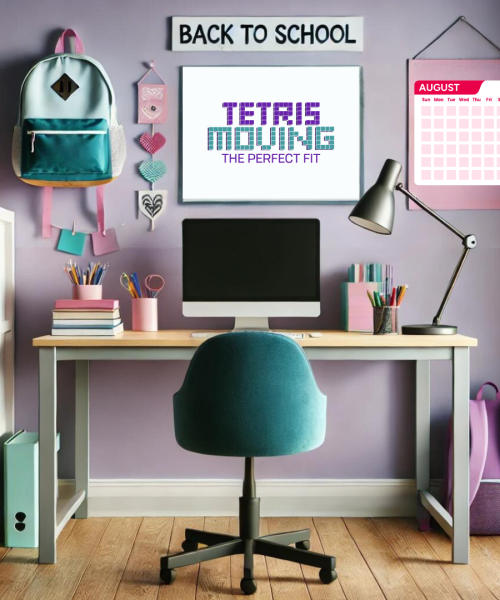Choose the Right Location
Select a spot in the house that is quiet and away from high-traffic areas. Consider using a spare bedroom, a corner of the living room, or a section of the basement. Avoid places near the TV or kitchen to minimize noise and distractions. If possible, choose a location with a window to take advantage of natural light, which can improve mood and concentration.
Ensure Proper Lighting
Natural light is best, so position the desk near a window if possible. Supplement with a high-quality desk lamp that provides bright, focused light. Look for LED lamps with adjustable brightness levels and color temperatures. Avoid overhead lights that cast shadows on the workspace, and instead, use task lighting that illuminates the study area evenly.
Invest in Ergonomic Furniture
Purchase a chair with adjustable height and good lumbar support to ensure your child sits comfortably. The desk should be at a height where your child can sit with their feet flat on the floor and their arms at a 90-degree angle. Consider a desk with adjustable height or one that can accommodate a footrest if needed. Ergonomic furniture can prevent back and neck strain, enhancing comfort and focus.
Minimize Distractions
Keep the study area clutter-free by using storage solutions like shelves, bins, and drawer organizers. Limit the number of decorative items on the desk to essential supplies only. Designate a specific spot for electronics, such as a charging station, to keep them out of sight during study time. Encourage your child to keep their study space tidy to maintain a focused environment.
Personalize the Space
Incorporate your child’s interests and personality into the study space. Allow them to choose a few decor items, such as a favorite poster, a plant, or a colorful desk organizer. Personal touches can make the space feel inviting and motivating. Avoid overly stimulating decorations that could distract from study tasks.
Establish a Routine
Set a specific time each day for study sessions to create a consistent routine. Ensure the study area is used exclusively for learning activities, reinforcing the association with focus and productivity. Use visual schedules or calendars to help your child understand and follow their study routine. Consistency in schedule and environment can improve study habits and time management skills.
Provide Necessary Supplies
Stock the study space with essential supplies, such as pens, pencils, notebooks, scissors, and a computer. Keep these items within easy reach to prevent interruptions during study sessions. Use drawer organizers or desktop caddies to keep supplies neatly arranged. Regularly check and replenish supplies to avoid last-minute scrambles for materials.
Incorporate Technology Wisely
Equip the study space with a reliable computer or tablet for research and assignments. Install educational apps and software that support your child’s learning. Set clear boundaries for recreational use of technology to prevent distractions. Use parental controls to manage screen time and ensure appropriate use of digital resources.
Encourage Breaks and Physical Activity
Promote regular breaks to prevent fatigue and maintain focus. Encourage your child to take a 5-10 minute break every hour to stretch, move around, or engage in a quick physical activity. Provide a comfortable chair for relaxing, or designate a small space for light exercises. Breaks can help refresh the mind and body, improving overall productivity.
Monitor and Adjust
Regularly assess the study space and your child’s needs. Ask for feedback on what is working well and what could be improved. Be willing to make adjustments, such as changing the layout, adding new supplies, or modifying the routine. Flexibility and responsiveness to your child’s needs can help maintain an effective and comfortable study environment.
Conclusion
At Tetris Moving, we believe that a well-organized and thoughtfully designed study space can significantly impact your child’s academic success and overall happiness. By following these tips, you can create a study area that promotes productivity, focus, and a love for learning. As you settle into your new home, let us help you make every space, including your child’s study area, a place where they can thrive. Trust Tetris Moving to guide you through every step of your moving journey with expertise, authority, and reliability.



